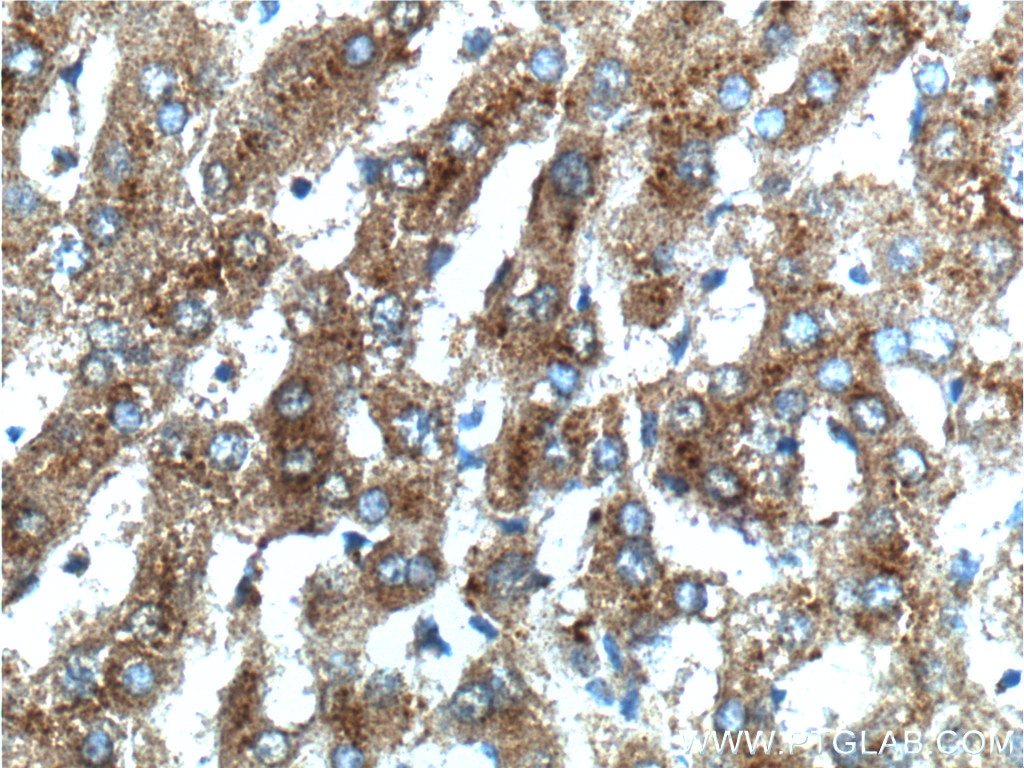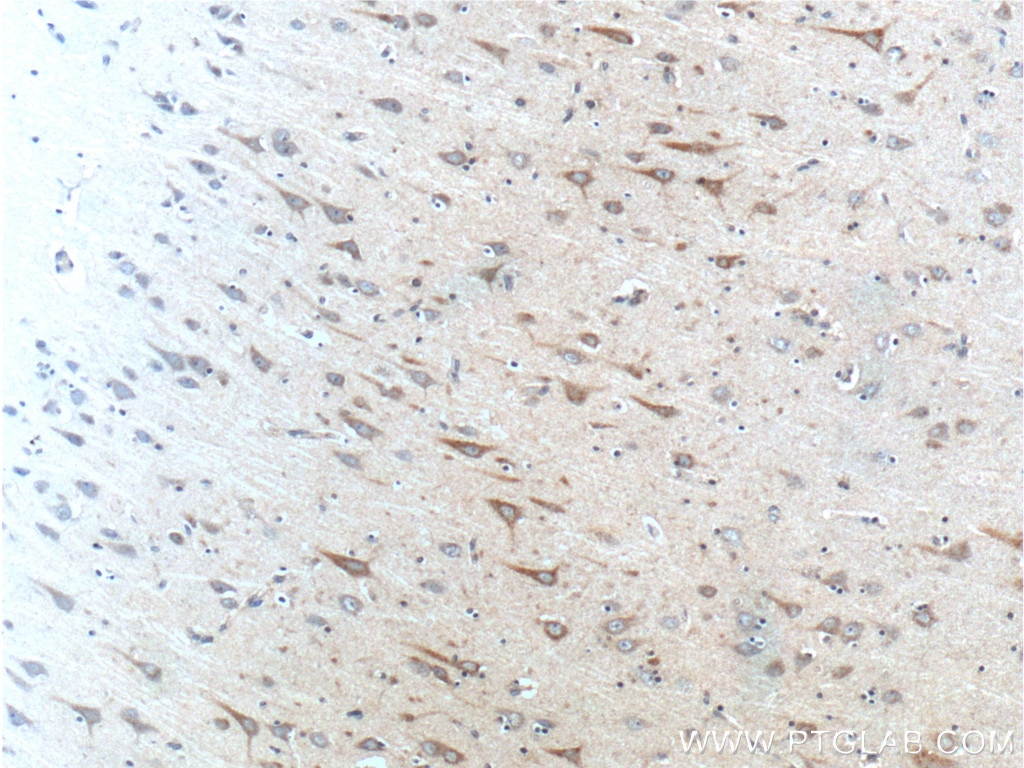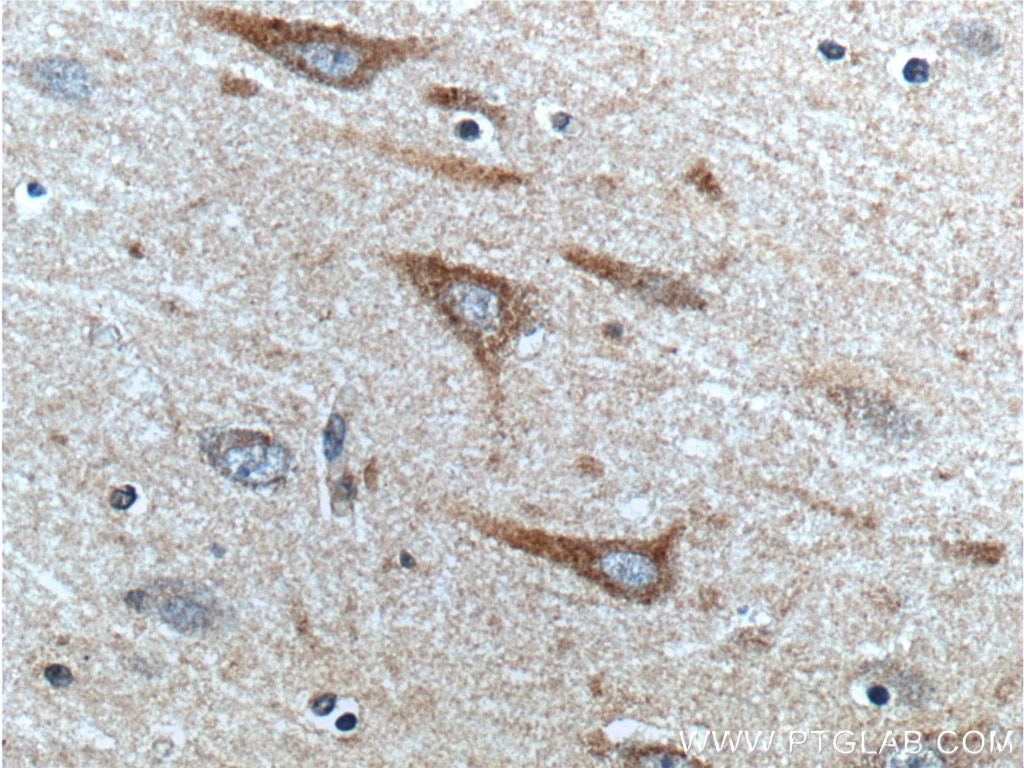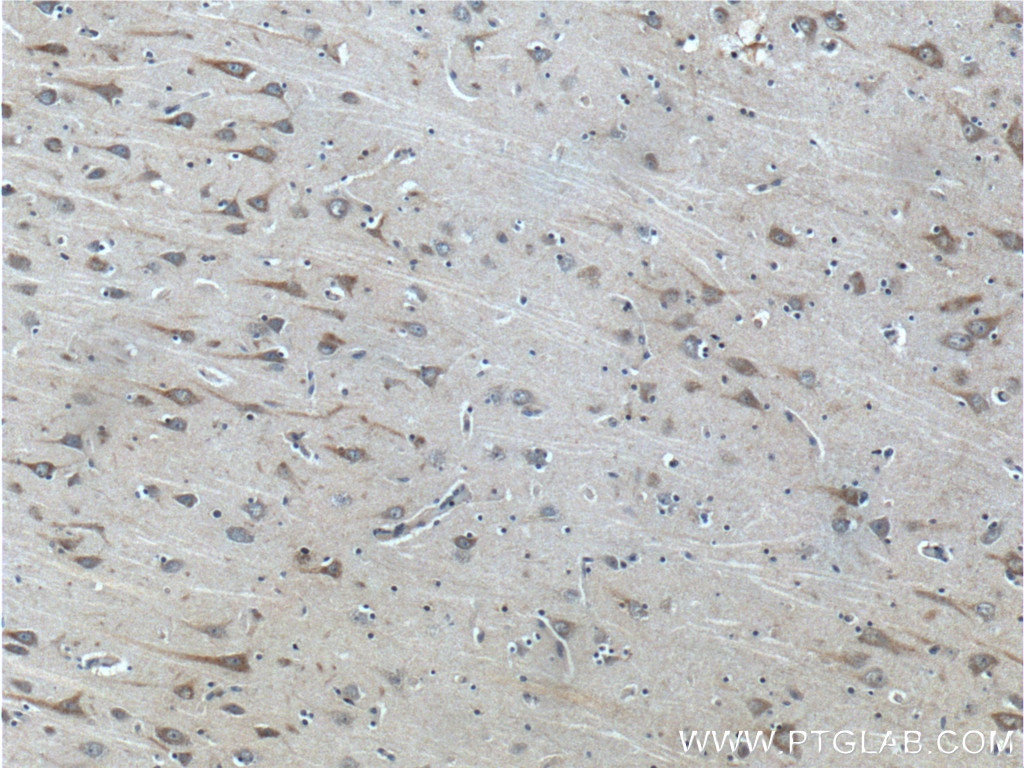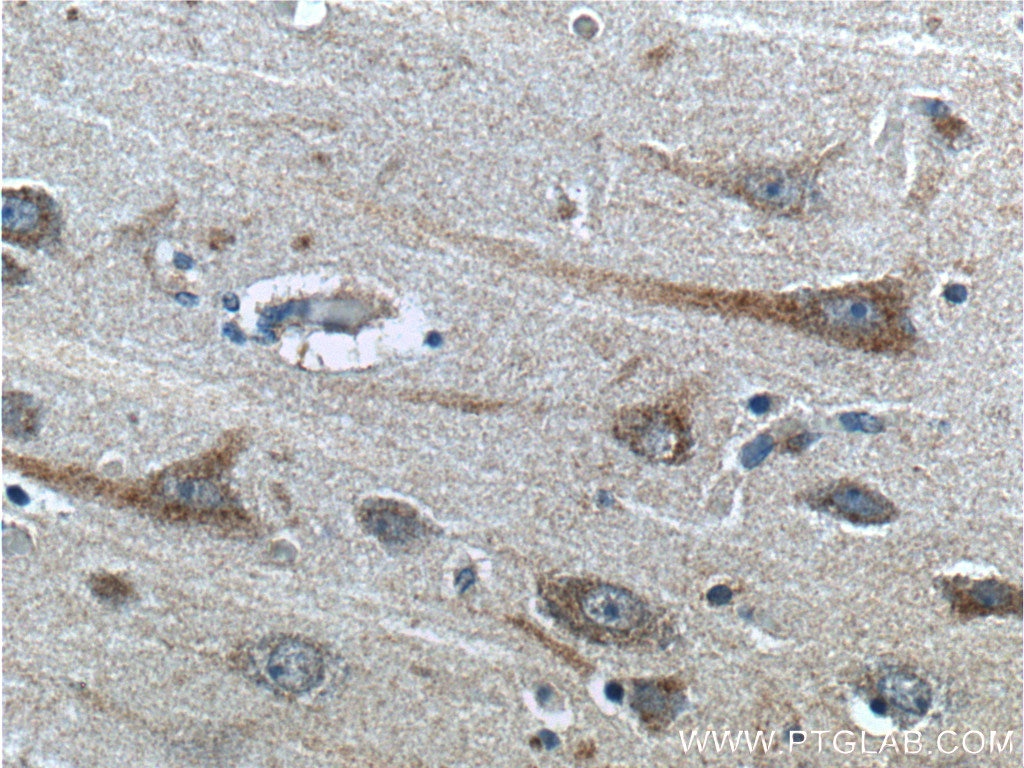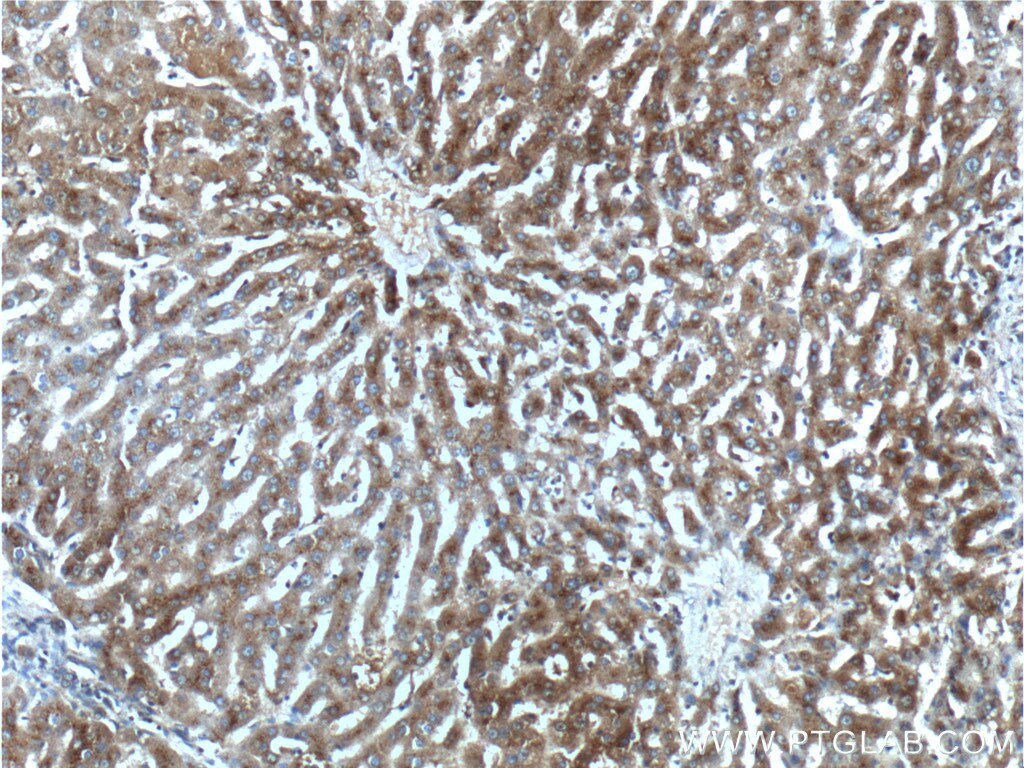Tested Applications
| Positive IHC detected in | human liver tissue, human brain tissue Note: suggested antigen retrieval with TE buffer pH 9.0; (*) Alternatively, antigen retrieval may be performed with citrate buffer pH 6.0 |
Recommended dilution
| Application | Dilution |
|---|---|
| Immunohistochemistry (IHC) | IHC : 1:20-1:200 |
| It is recommended that this reagent should be titrated in each testing system to obtain optimal results. | |
| Sample-dependent, Check data in validation data gallery. | |
Published Applications
| KD/KO | See 3 publications below |
| IHC | See 11 publications below |
| IF | See 5 publications below |
Product Information
23393-1-AP targets SCD in IHC, IF, ELISA applications and shows reactivity with human, rat samples.
| Tested Reactivity | human, rat |
| Cited Reactivity | human, mouse, rat, chicken |
| Host / Isotype | Rabbit / IgG |
| Class | Polyclonal |
| Type | Antibody |
| Immunogen |
CatNo: Ag13456 Product name: Recombinant human SCD protein Source: e coli.-derived, PET28a Tag: 6*His Domain: 155-355 aa of BC005807 Sequence: RDHRAHHKFSETHADPHNSRRGFFFSHVGWLLVRKHPAVKEKGSTLDLSDLEAEKLVMFQRRYYKPGLLMMCFILPTLVPWYFWGETFQNSVFVATFLRYAVVLNATWLVNSAAHLFGYRPYDKNISPRENILVSLGAVGEGFHNYHHSFPYDYSASEYRWHINFTTFFIDCMAALGLAYDRKKVSKAAILARIKRTGDGN Predict reactive species |
| Full Name | stearoyl-CoA desaturase (delta-9-desaturase) |
| Calculated Molecular Weight | 355 aa, 41 kDa |
| Observed Molecular Weight | 40 kDa |
| GenBank Accession Number | BC005807 |
| Gene Symbol | SCD |
| Gene ID (NCBI) | 6319 |
| RRID | AB_2744674 |
| Conjugate | Unconjugated |
| Form | Liquid |
| Purification Method | Antigen affinity purification |
| UNIPROT ID | O00767 |
| Storage Buffer | PBS with 0.02% sodium azide and 50% glycerol, pH 7.3. |
| Storage Conditions | Store at -20°C. Stable for one year after shipment. Aliquoting is unnecessary for -20oC storage. 20ul sizes contain 0.1% BSA. |
Background Information
SCD (stearoyl-CoA desaturase) is a 37-45 kDa (PMID:10946019) microsomal fatty acid monodesaturase, also commonly known as 9-desaturase, which catalyses the committed step in the biosynthesis of mono-unsaturated fatty acids from saturated fatty acids. Five SCD genes (SCD1, SCD2, SCD3,SCD4 and SCD5) have been identified and characterized in mice and SCD1 and SCD2 are the main isoforms expressed in mouse liver and brain respectively, SCD3 is expressed exclusively in skin, whereas SCD4 is expressed predominantly in the heart. SCD1and SCD5 has been the only human SCD gene identified and characterized todate(PMID:15907797 ). The formation of homodimers and oligomers is an intrinsic property of SCD proteins, which may play an important role in regulating the half-life of the SCDenzymes, thus representing a novel regulatory mechanism for SCD enzymes, in addition to the transcriptional and post-translational regulations. A 32-kDa SCD1 degradation product identified may be caused by a major cleavage site at the C-terminus, thus representing a novel degradation product(PMID:15610069).
Publications
| Species | Application | Title |
|---|---|---|
Nucleic Acids Res EWS-FLI1 regulates and cooperates with core regulatory circuitry in Ewing sarcoma. | ||
EMBO J A stress-induced tyrosine-tRNA depletion response mediates codon-based translational repression and growth suppression. | ||
Stem Cells Increased lipogenesis is critical for self-renewal and growth of breast cancer stem cells: Impact of omega-3 fatty acids.
| ||
Liver Int Disruption of Plin5 degradation by CMA causes lipid homeostasis imbalance in NAFLD. | ||
J Physiol Sex-specific metabolic responses to 6 hours of fasting during the active phase in young mice. | ||
Int J Biol Sci Long noncoding RNA SH3PXD2A-AS1 promotes colorectal cancer progression by regulating p53-mediated gene transcription. |

